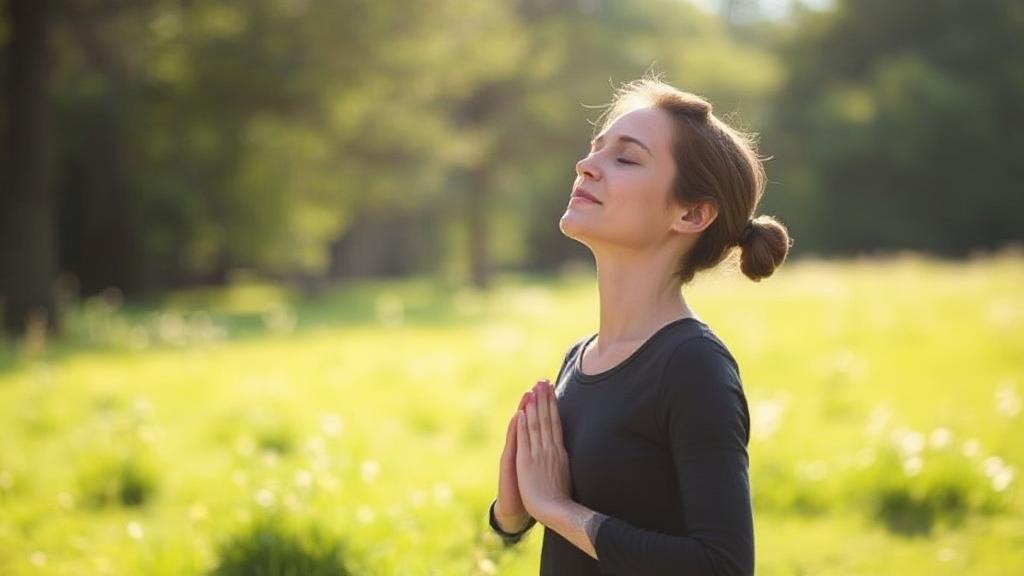Anxiety is a universal human experience, but when it becomes persistent or overwhelming, it can interfere with daily life and well-being. While medication is a common and sometimes necessary treatment, many people seek effective strategies to manage anxiety without pharmaceuticals. Fortunately, a wealth of evidence-based approaches—ranging from lifestyle changes to psychological techniques—can help you regain a sense of calm and control. Below, we explore comprehensive, natural, and practical methods for managing anxiety, integrating insights from multiple expert sources.
Understanding Anxiety and the Value of Non-Medication Approaches
Anxiety manifests emotionally (apprehension, irritability), physically (racing heart, muscle tension), and cognitively (racing thoughts, catastrophizing). Recognizing these symptoms is the first step toward addressing them. Many individuals prefer non-medication strategies due to concerns about side effects, interactions, or a desire for holistic, sustainable solutions. For more on natural approaches, see Natural ways to reduce anxiety and promote calmness.
Lifestyle Modifications for Anxiety Relief
1. Harness the Power of Movement
Regular physical activity is a potent anxiety reliever. Exercise releases endorphins, reduces muscle tension, and improves sleep. Aim for at least 30 minutes of moderate-intensity activity most days—walking, swimming, yoga, or cycling are all excellent choices. For more on the connection between exercise and mental health, visit the Anxiety & Depression Association of America.
2. Prioritize Restful Sleep
Poor sleep and anxiety often reinforce each other. Establish a consistent sleep schedule, wind down with relaxing activities, and optimize your bedroom environment (cool, dark, quiet). Limit caffeine and heavy meals before bed. For comprehensive tips, see the Sleep Foundation’s guide.
3. Nourish Your Body, Calm Your Mind
A balanced diet supports mental health. Focus on whole foods—fruits, vegetables, lean proteins, and whole grains. Omega-3 fatty acids (found in fatty fish, flaxseeds, walnuts) may help reduce anxiety. Limit processed foods, sugar, caffeine, and alcohol. Learn more about the gut-brain connection and nutritional strategies at Harvard Health Publishing and Top supplements for managing anxiety symptoms.
Mind-Body Techniques for Inner Peace
Mindfulness and Meditation
Mindfulness involves focusing on the present moment without judgment. Meditation cultivates this awareness, reducing rumination and improving emotional regulation. Even 5–10 minutes daily can help. Try guided meditations from Headspace or Calm, or explore A beginner’s guide to meditation: How to get started and build a practice. For deeper insights, see The benefits of mindfulness meditation for mental and physical well-being.
Deep Breathing and Relaxation
Breathing exercises like box breathing can quickly calm your nervous system:
Explore more effective ways to relieve stress quickly.
Yoga and Tai Chi
These practices combine movement, breath, and mindfulness, promoting relaxation and reducing stress. Yoga improves flexibility and body awareness, while Tai Chi enhances balance and tranquility. Learn more about their benefits at Johns Hopkins Medicine.
Cognitive and Behavioral Strategies
Cognitive Behavioral Techniques
CBT is the gold standard for anxiety management. Even without a therapist, you can:
- Challenge negative thoughts: Ask if your anxious thoughts are realistic or helpful.
- Reframe catastrophic thinking: Replace “What if something terrible happens?” with “What if things go well?”
- Gradual exposure: Face feared situations in small, manageable steps to reduce avoidance.
For more, see Effective strategies for managing chronic pain, as many pain management techniques overlap with anxiety management.
Journaling and Creative Outlets
Writing about your thoughts and feelings can help process anxiety, identify triggers, and track progress. Creative activities like drawing, music, or crafting also provide healthy distractions.
Social and Environmental Support
Build a Support System
Social connection is crucial. Reach out to friends, family, or support groups. Online communities like 7 Cups or Anxiety and Depression Association of America offer resources and understanding.
Spend Time in Nature
Nature exposure reduces stress hormones and improves mood. Aim for at least 120 minutes in natural environments each week. Learn more about the benefits of a stress-free lifestyle.
Additional Helpful Approaches
- Effective time management: Use planners and prioritize tasks to reduce overwhelm.
- Limit stimulants: Reduce caffeine and alcohol, which can worsen anxiety.
- Engage in hobbies: Activities you enjoy can boost mood and provide healthy distraction.
- Practice self-compassion: Be kind to yourself when anxiety arises; self-criticism can worsen symptoms.
For strategies to naturally reduce stress hormones, see Effective strategies to naturally reduce cortisol levels.
When to Seek Professional Help
While self-help strategies are effective for many, professional guidance is sometimes essential. Seek help if:
- Anxiety significantly impairs daily functioning
- Symptoms persist despite consistent efforts
- You experience panic attacks or thoughts of self-harm
Therapies like CBT, Acceptance and Commitment Therapy (ACT), and Mindfulness-Based Stress Reduction (MBSR) are evidence-based and can be pursued without medication. For support, visit the National Institute of Mental Health (NIMH) or the SAMHSA Helpline.
Creating Your Personalized Anxiety Management Plan
The most effective approach combines multiple strategies tailored to your needs. Consider:
- Daily practices: Breathing exercises, brief meditation
- Regular activities: Exercise, social connections
- Environmental modifications: Nature time, calming workspace
- Professional support: Therapy, support groups
- Progress tracking: Journaling, symptom monitoring
For specific situations, such as pregnancy, see Effective strategies for managing stress during pregnancy.
Conclusion
Managing anxiety without medication is possible through a combination of mindfulness, cognitive strategies, lifestyle changes, and social support. Experiment with different techniques, be patient with yourself, and remember that seeking help is a sign of strength. Consistency is key—small, steady steps often yield the best results. For further reading, explore Natural ways to lower blood pressure without medication and related resources to support your journey toward calm and resilience.
